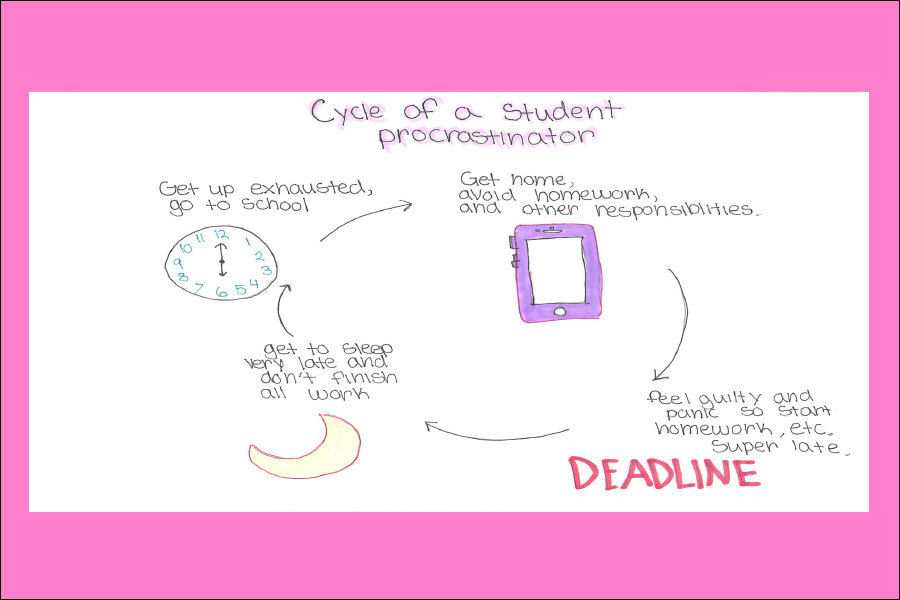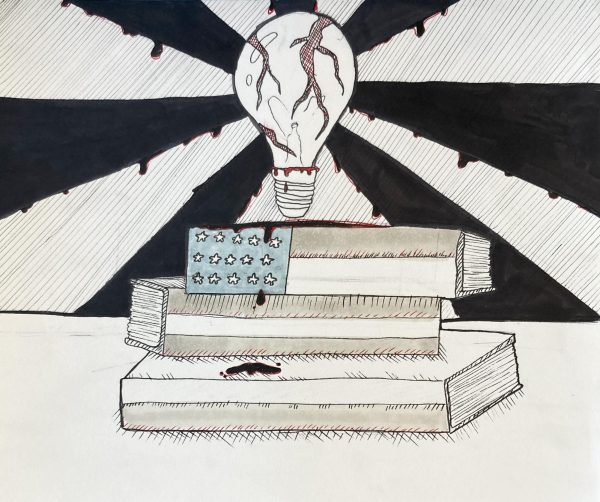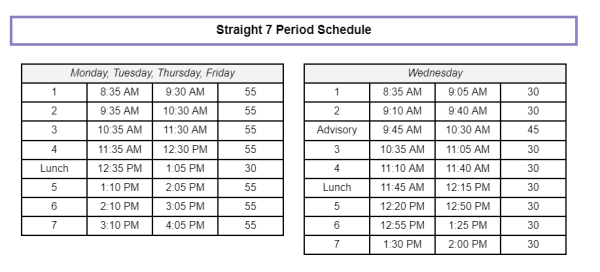Setback and Denial: Procrastination in Teenagers
November 29, 2022
Remember when you got assigned an essay that was due in three weeks and you put it off to the very last minute? Or when you wanted to watch a show and ended up binging it and avoiding all responsibilities? You make decisions to keep putting off work and you get left further and further behind. However, when the grade is entered as a zero or missing, there is instant regret.
Procrastination is the act of putting off decisions or actions unnecessarily. It can happen as a result of being challenged by work of any sort at any point in life.
A minimal amount of procrastination every so often is normal, but when it becomes a genuine problem it can be very harmful. This happens especially when big tests or projects come around.
According to Dr. Itamar Shatzm writing for Solving Procrastination, “Procrastination is associated with a variety of dangers and negative effects, including worse academic performance, worse financial status, increased interpersonal relationship issues, reduced wellbeing, and worse mental and physical health.”
These dangers can be detrimental to a person’s well-being, but there are ways to stop it. If procrastination is conquered, it can increase a person’s self control and change their mindset so they’re not just doing work when they “feel like it.”
Teens usually use little distractions to put off their work to the point of denial, and once it gets close enough to the deadline they rush to get everything accomplished in time. They have “I will just do it later” stuck in their mind. This continuous cycle of setback and denial is a common mindset, and when someone asks about it, a common response is, “I will get it done – don’t worry about it.” But it never ends up happening.
Hannah Clinton, a student at Santa Fe High, said, “Yes, I fight procrastination, and it affects my grades and attendance. I have no motivation, and some things are just so unnecessary and overwhelming.”
It’s important to note that procrastination isn’t just a sign of laziness, but it can relate to bigger issues such as depression, anxiety, and low self-esteem, according to the website of McLean Hospital, a Harvard Medical School affiliate. Procrastination can also be a symptom of attention-deficit/hyperactivity disorder (ADHD), obsessive compulsive disorder (OCD), and many other conditions.
“I struggle with depression and anxiety, and it contributes to my procrastination in that it’s a continuous cycle of being behind,” said Eve Ruybal, another student.
“Procrastination is a problem for me,” said Anika Heinonen, another student at Santa Fe High. “However, I use certain methods that motivate me to finish my work, such as creating timers and checklists.”
It’s hard to break procrastination habits, but there are ways to help. These include making checklists, using a more positive way of thinking, setting up a way of motivation (prizes, etc.), breaking larger tasks into smaller parts, and creating a good studying environment.
(Story artwork by Rees Schellstede.)












